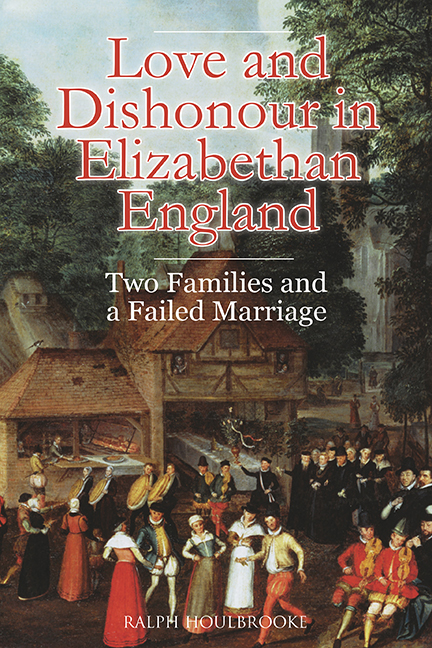Book contents
- Frontmatter
- Dedication
- Contents
- List of Illustrations
- Preface and Acknowledgements
- Notes on the Spelling of Names, Dates, and Currency
- List of Abbreviations
- map
- Miscellaneous Frontmatter
- Introduction
- Part I Two Families
- Part II An Unfortunate Marriage
- Part III Afterwards
- 7 Aftermath
- 8 Conclusions, Reflections, and Speculations
- Bibliography
- Index
8 - Conclusions, Reflections, and Speculations
from Part III - Afterwards
Published online by Cambridge University Press: 13 July 2019
- Frontmatter
- Dedication
- Contents
- List of Illustrations
- Preface and Acknowledgements
- Notes on the Spelling of Names, Dates, and Currency
- List of Abbreviations
- map
- Miscellaneous Frontmatter
- Introduction
- Part I Two Families
- Part II An Unfortunate Marriage
- Part III Afterwards
- 7 Aftermath
- 8 Conclusions, Reflections, and Speculations
- Bibliography
- Index
Summary
The story of the marriage of Charles and Elizabeth Forth forms a fascinating case study in the micro-politics of family, gender, and religion. Katherine and Elizabeth Jerningham, wife and daughter of a ruined Catholic, an ex-conspirator and spy, allegedly lured into matri¬mony the son of Robert Forth, a respectable puritan gentleman. After the marriage's breakdown, Elizabeth Forth and her Catholic kinsman Henry Jerningham successfully sued her father-in-law for the return of her dowry and for sums in lieu of maintenance during her absences from the conjugal home. She claimed that her husband Charles had twice abandoned her; Robert Forth insisted that on the contrary she had deserted her husband.
The Elizabethan family, particularly the propertied family, is conventionally – and with some justice – pictured as a sternly patri¬archal institution in which the power of fathers and husbands was underpinned by law, convention, and deeply inculcated doctrines. Many historians of the period have emphasised the range of influ¬ences that in practice qualified and limited the exercise of patriarchal power within individual families. The case of Charles and Elizabeth Forth illustrates some of these very well. Charles Forth was by no means the only heir of a gentry family to marry without his father's knowledge and consent, thus committing what was by the standards of the period a particularly serious offence against paternal author¬ity. Some fathers disinherited children who behaved in this way and turned them adrift. Robert Forth claimed that he had nevertheless forgiven Charles and Elizabeth, influenced by his own love for his son and the persuasions of kinsmen. He was content to receive them into his house, in the hope that he might receive comfort from them and their children.
Nothing, Robert claimed, grieved and offended him and his wife Frances so much as the clear signs that Elizabeth ‘never affected or heartily loved’ Charles. This did not mean that the Forths expected the young couple to exhibit a passionate attachment. ‘Hot love is soon cold’, as a common proverb warned. Rather they believed that Elizabeth felt no genuine affection for Charles. It would almost certainly be a mistake to think that sixteenth-century people accepted a low level of affection in marriage, or even its absence, simply because matches were often arranged to serve family interests or because economic consider¬ations were usually important in the choice of partners.
- Type
- Chapter
- Information
- Love and Dishonour in Elizabethan EnglandTwo Families and a Failed Marriage, pp. 231 - 242Publisher: Boydell & BrewerPrint publication year: 2018

